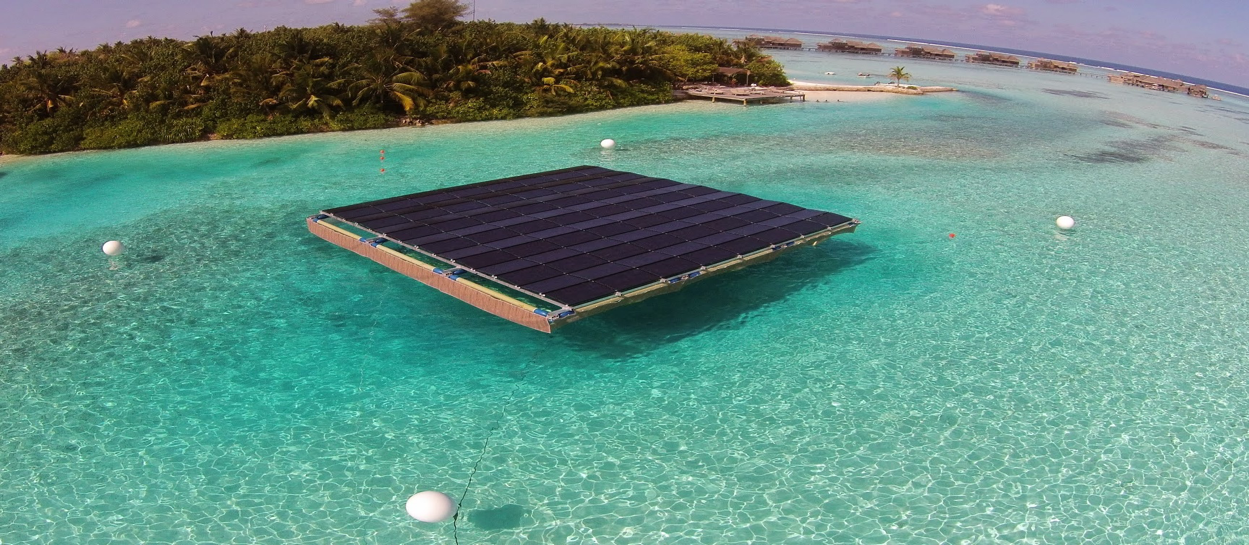By Vasu Beepath
As far as the evolution of human energy use is concerned they were gradual shifts rather than sudden transitions. Coal displaced wood and oil displaced coal, economic and technical changes would also ensure that natural gas and renewable energy will displace oil at a highly predictable schedule. The rising demand for cleaner fuels to sustain our rapidly expanding economy is tied with concerns about climate change and, looking 100 years into the future there is a very low possibility that fossil fuels will sustain the world to the same extent as they do now.
The clean energy revolution is particularly important because we must stop the rapid warming of the atmosphere primarily caused by the overuse of fossil fuels and limit the global temperature rise to 1.5°C or below by 2100. One of the most logical ways to do this and prevent the long-term effects of global warming other than energy efficiency is, to reduce the reliance on fossil fuels by shifting a share of the world’s energy supply to renewables. This transition can result in a completely transformed energy foundation that will lower the dependence on fossil fuel use.
A transition into a new energy foundation such as renewable energy presents itself with untapped opportunities in the Latin America and Caribbean region. Notably in the Latin American region, expanding developments in wind and hydro-generation are a key step towards this transition because these countries are mountainous, have large dispersed water resources and a growing energy demand for their modernising economies. Studies show that no other method of electricity has lower energy costs than hydroelectricity. This renewable energy transition is already well under way in Costa Rica as they have produced 98% of their electricity from mixed renewables since 2015.
Also, when looking at the possibility of energy transitions in the Caribbean region, ample sunlight and regular trade winds provide opportunities for renewable energy access. With their compact territories requiring less overall energy for consumption, wind and solar energy can be efficiently generated and tied onto the power grid. Electricity costs are high for these countries as they rely heavily on the importation of fuel with the exception of Trinidad and Tobago, who produces their own. Therefore, by using renewable energy as a share of their primary energy, the fuel import bill can be reduced. This is evident in Barbados who is the Caribbean’s solar thermal leader with 80-90 % of residents having domestic rooftop heaters installed.
However, in order for this renewable energy transition to expand in our region we will require a rapid scaling-up of technological innovation for transmission and storage capacity throughout Latin America and the Caribbean. The introduction of technical fixes and designs for integrating clean energy onto the grid can improve the existing energy structure, reduce the environmental, social, and economic stress brought about by growing energy demands and create a new innovative market that can hold a competitive advantage because of early development.
The burning of fossil fuels, its extraction, and conversion has become the single largest cause of human interference contributing to global warming. It depletes natural capital, pollutes, and interferes with the global carbon cycle leading to irreversible impacts on the environment. With our excessive energy consumption, we are returning to the atmosphere and oceans the carbon that was stored in sedimentary rocks over hundreds of millions of years ago. The impacts resulting from an increased concentration of carbon dioxide by using fossil fuels accelerates climate change, affects human health, ecosystems, as well as the economic and social performance of millions of people.

Source: NOAA Mauna Loa CO2 record.
Whatever the length of our fossil-fuelled civilisation will be, it will not be able to match the duration of human civilisation because the rate at which we use energy paired with an increasing population surpasses the rate at which we will take to fully transition to clean energy. We do however possess a more powerful technical means to effect faster energy transitions than we did a century ago and our collective persistence and determination can accelerate this inevitable change.
Our human impact on global warming can be changed if we pursue an energy convergence whereby we reduce energy demand and increase the share of renewables within our primary energy supply. This transition will be a lengthy process to develop, prefect, implement and diffuse such a widespread commercial adoption of renewable energy in our region. However, it can be realistically achieved through a strong long-term commitment towards continuous technical advances in making renewable energy more efficient, reliable and affordable.
Energy transitions have been among the most important processes of technical evolution and historically it has shown that every one of these transitions has benefitted humanity. The realm of what is possible is always greater than what is imagined because technical innovations, scientific advancement, economic and political actions can reshape human behaviour and ambitions towards unfolding a clean energy future.
Vasu Beepath is a Climate Change Advocate from Trinidad and Tobago and a Member of the Caribbean Youth Environment Network – TT chapter . Her interests are climatic anomalies as well as reading historical fact/fiction.


Leave a Reply